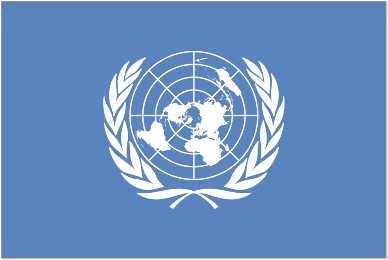
Stressing the need for an integrated response to terrorism, UN Secretary-General Ban Ki-moon says Member States will decide to create the position of a UN Counter-Terrorism Coordinator to promote better coordination, collaboration and cooperation among all players.
“By working together – from strengthening law enforcement to tackling the underlying drivers of extremism – we can greatly reduce this major threat to peace and security,” Mr. Ban told the Security Council, during its debate on threats to international peace and security caused by terrorist acts.
The meeting – organized by Azerbaijan, which holds the Council’s rotating presidency for this month, and whose President, Ilham Aliyev, chaired today’s discussion – comes ahead of next month’s review by the General Assembly of the United Nations Global Counter-Terrorism Strategy.
Adopted by the Assembly in September 2006, the strategy is based on four pillars: tackling the conditions conducive to the spread of terrorism; preventing and combating terrorism; building States’ capacity to prevent and combat terrorism and to strengthen the role of the UN system in that regard; ensuring respect for human rights for all and the rule of law as the fundamental basis for the fight against terrorism.
Mr. Ban noted that terrorism is a “significant” threat to peace and security, prosperity and people, and the global community continues to pursue a robust and comprehensive response.
While collective efforts have disrupted attacks and disabled terrorist networks, recent attacks in Afghanistan, Iraq, Nigeria and Yemen demonstrate that the threat is still formidable, he said, adding that “terrorist organizations continue to look for new havens, adopt new tactics and seek new targets.”
The UN chief highlighted the need to focus special attention on conditions conducive to spreading terrorism, as well as to pursue the integrated approach to terrorism and violent extremism embodied in the Global Strategy.
“That means countering the appeal of terrorism, strengthening capacity building and protecting human rights as a central part of our response,” he said. “It means resolving differences peacefully, providing education and job opportunities, promoting development and inter-cultural dialogue, and addressing the grievances that terrorists exploit.”
It also means promoting respect for human rights and respect for the rule of law, which are integral to any sustainable counter-terrorism approach, and recognizing and alleviating the suffering of victims, Mr. Ban added.
He also urged Member States to make full use of the Counter-Terrorism Implementation Task Force, which he called a valuable tool for creating an integrated response for capacity-building and for sharing best practices.
The meeting concluded with a presidential statement in which the Council recognized that “the scourge of terrorism can only be defeated by a sustained and comprehensive approach involving active participation and collaboration of all States.”
It also emphasized the need for more enhanced cooperation and solidarity among Member States to prevent and suppress terrorist attacks; reiterated the obligation of Member States to refrain from providing any form of support to anyone associated with terrorist acts; and recognized the continued need to take measures to prevent and suppress the financing of terrorism and terrorist organizations.